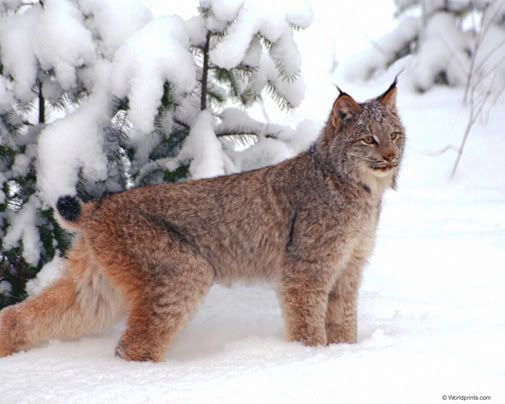
In a state almost completely covered with trees, forest harvest practices in Maine can seriously influence populations of many of the furbearers that call the Maine woods home.
Two such furbearers, the American marten and Canada lynx, depend on certain forest types for their survival. Lynx need 20-40 year-old successional forest that holds plenty of snowshoe hares (their main prey base), while marten need forest with heavy canopy cover and some thick trees to protect them from predators.
In 1989, the Maine Forest Practices Act, a landmark piece of legislation that was pushed by many environmentalists and conservationists, began the process of fragmenting the state’s northern forest. In simple terms, the act basically limited the size of clear-cuts. This eliminated the large, barren openings in the forest that many environmentalists and members of the public simply didn’t like looking at.
The new restrictions on the size of clear-cuts didn’t reduce the number of trees that were being harvested from the forest, however. It simply began transforming the landscape from one of a few, very large clear-cuts, to a patchwork pattern of numerous small clear-cuts dotting the landscape.

This new landscape that continues to take form in the northern forest is far from ideal for our valuable furbearers like marten and lynx. The large patches of forest that once existed are now plastered with small openings that support less food for lynx and make marten more vulnerable to predators. Further, the once-prevalent large clear-cuts that re-grew into large stands of quality habitat are becoming increasingly rare. And in the long run, this could mean fewer lynx, marten, and other forest dwellers that have similar habitat needs.
As it’s beginning to appear that the highly touted Forest Practices Act may not have been such a great idea after all, and many are working to see if overturned. The Nature Conservancy, among others, is exploring ways to ensure future habitat conditions promote healthy populations of valuable furbearers in northern Maine.
Read the Nature Conservancy story here.
See a recent lynx/clearcut story from the Boston Globe here.
Leave a Reply